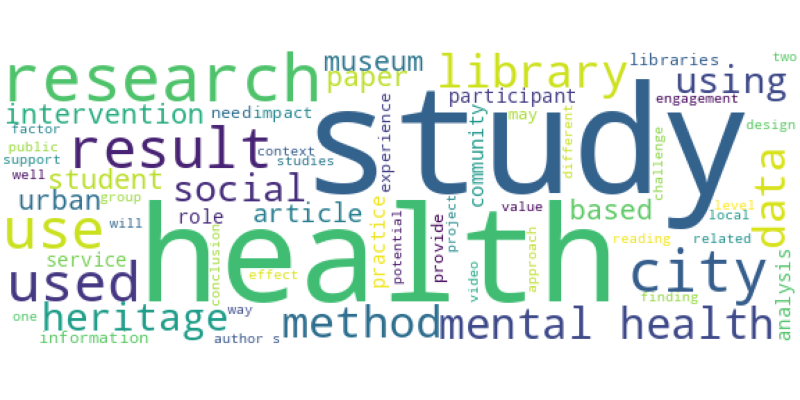| Id | 2380 | |
| Author | Susilawati E.; Johari A.; Marzal J.; Anggereini E. | |
| Title | Effects of Multimedia E-Books and Augmented Reality on Knowledge and Skills of Health Sciences Students: A Systematic Review | |
| Reference | Susilawati E.; Johari A.; Marzal J.; Anggereini E. Effects of Multimedia E-Books and Augmented Reality on Knowledge and Skills of Health Sciences Students: A Systematic Review,Journal of Client-Centered Nursing Care 8 2 |
|
| Link to article | https://www.scopus.com/inward/record.uri?eid=2-s2.0-85134419608&doi=10.32598%2fJCCNC.8.2.380.2&partnerID=40&md5=f8162ae29d01050f251be398fbbd31db |
|
| Abstract | Background: The limited ability of educational institutions to prepare learning materials due to being expensive makes it essential to use other methods such as digital methods or minimize the use of excessive learning materials. Accordingly, the present systematic review aims to find out the effects of multimedia e-books and Augmented Reality (AR) on the knowledge and skills of health sciences students. Methods: This systematic review was conducted based on the Preferred Reporting Items for Systematic Reviews and Meta-Analyses (PRISMA) statement. Relevant articles were searched in ScienceDirect, ERIC, ProQuest, Pubmed, and Wiley Online Library, with the publication year of 2010-2021. Eligibility criteria were determined based on the PICOS guidelines. Joanna Briggs Institute (JBI) checklists were used for the quality assessment of the included articles. The risk of bias was assessed using the Cochrane Collaboration’s risk-of-bias assessment tool. The articles were analyzed thematically after collecting their main findings, design, and applied methods. Results: The initial search yielded 493 articles. After removing duplicates, articles met exclusion criteria, and those with low quality, 11 eligible articles were selected for the review. Studies showed that multimedia e-books increased the students’ knowledge of evidence-based medicine, anatomy, community health nursing, pediatric care, electrocardiogram, and sexual harassment prevention. The use of AR increased the skills of students in performing local anesthesia, dental care, and anatomy. Conclusion: The use of multimedia e-books and AR has significant effects on the learning process of health sciences students compared to conventional teaching methods. © 2022 The Authors. All rights reserved. |
|
| Keywords |
Wordcloud:



